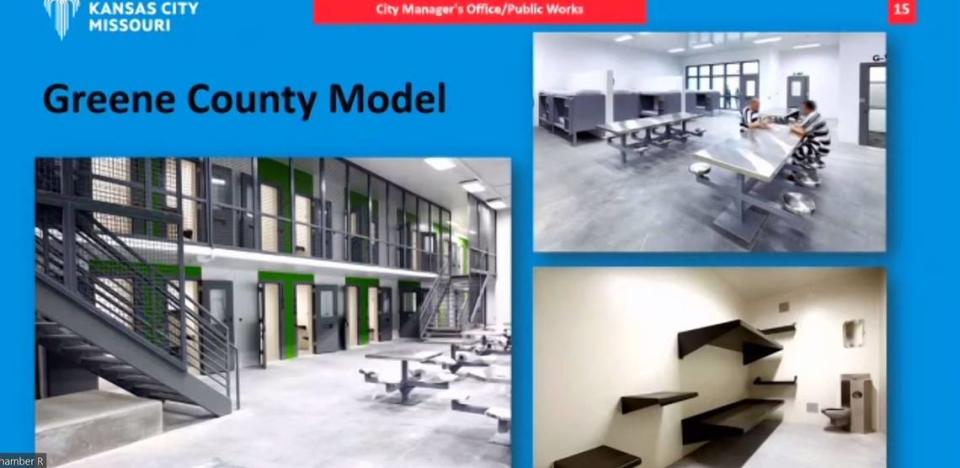Kansas City leaders weigh three options for new multi-million dollar jail facilities
Kansas City council members have two weeks to decide whether to build a new city jail or combine detention facilities with Jackson County to house detainees awaiting trial or serving sentences.
During a special session Friday, the council was presented with three options for new facilities, which included two options that would combine with the new 1,000-bed Jackson County Detention Center being built in eastern Kansas City.
Jackson County requested Kansas City leaders make a decision by Sept. 15 because of potential construction delays.
The first two options would include space for Kansas City detainees in combination with the county. One would cost between $60 million and $72 million, while the other would include additional “operational and maintenance” space and cost between $183 million and $215 million.
The third option calls for Kansas City to create a separate campus with two facilities based on a model of the detention center in Missouri’s southwest Greene County. That would cost between $179 million and $195 million.
Each option includes a $61 million community resource center, which would provide mental health and rehabilitation services, according to city documents.

In 2009, Kansas City closed its own jail near the Truman Sports Complex. For the next decade, city detainees were housed at the Regional Correctional Center, the art deco building that adjoins the red-brick Jackson County Detention Center in downtown Kansas City.
Since the city’s agreement with Jackson County to house its detainees ended in 2019, the city has been transporting dozens of detainees to jails in Warrensburg and Nevada, Missouri.
City detainees are held on misdemeanor charges, while the county detainees are awaiting trial on felonies.
During Friday’s meeting, Mayor Quinton Lucas described himself as “flexible” about the options and said the city plans to have “subsequent communications” with Jackson County and the public in the coming week.
Council member Johnathan Duncan, 6th District, noted the number of beds suggested in the proposals — at least 300 — was calculated without considering possibilities other than incarceration.
The Alternatives to Incarceration Commission, whose 10 members were appointed by Lucas, had been given the task of determining the number of beds needed, but the group said it needed more time to come up with that figure.
A member of the group, Council member Darrell Curls, 5th District-at-Large, said once the commission came together, they were researching bed counts instead of alternatives to incarceration.
“We requested more time so that we were not just focusing on the number of beds,” Curls said.
Jackson County legislators in May voted to move forward with its $301 million jail project.


